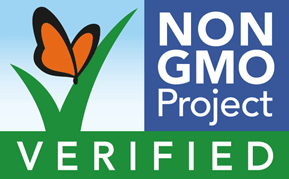What are GMO Foods?
A genetically modified organism (GMO) is an organism whose genetic material has been altered using genetic engineering techniques.
Organisms that have been genetically modified include micro-organisms such as bacteria and yeast, insects, plants, fish, and mammals. GMOs are the source of genetically modified foods and are also widely used in scientific research and to produce goods other than food. The term GMO is very close to the technical legal term, ‘living modified organism’ defined in the Cartagena Protocol on Biosafety, which regulates international trade in living GMOs (specifically, “any living organism that possesses a novel combination of genetic material obtained through the use of modern biotechnology”).
Studies show that eating GMOs can be harmful to our health, having been linked to cancer and premature death. As a result of these risks, many people in the United States, Canada, Europe, Japan, and other nations are demanding non-genetically modified (non-GMO) foods.
The American Academy of Environmental Medicine (AAEM) recently released its position paper on Genetically Modified foods stating that “… GM foods pose a serious health risk”. The AAEM called for a moratorium on GM food, with implementation of immediate long-term safety testing and labeling of GM food. The AAEM is just one of many organizations worldwide calling for these steps to be taken.
How to Protect Yourself
In order to protect yourself and your family you need to become aware, and eat as little GMO as possible. By educating yourself and becoming smart you can learn how to avoid the risks associated with eating lab-created, DNA-manipulated foods.
As a result of these risks, many people in the United States, Canada, Europe, Japan, and other nations are demanding non-genetically modified (non-GMO) foods.
The American Academy of Environmental Medicine (AAEM) recently released its position paper on Genetically Modified foods stating that “… GM foods pose a serious health risk”. The AAEM called for a moratorium on GM food, with implementation of immediate long-term safety testing and labeling of GM food. The AAEM is just one of many organizations worldwide calling for these steps to be taken. Read their position paper on GMOs
Banned in Other Countries
In 30 other countries around the world, including Australia, Japan and all of the countries in the European Union, there are bans on GMOs because they are not considered safe. In the United States, the FDA has approved commercial production of GMOs based on studies from the same companies that profit from their sale.
How to Protect Yourself
In order to protect yourself and your family you need to become aware, and eat as little GMO as possible. By educating yourself and becoming smart you can learn how to avoid the risks associated with eating lab-created, DNA-manipulated foods.
5 Ways to Avoid GMO Foods
1. Buy Organic
Organic foods by law cannot contain GMOs
2. Look for the Non-GMO Seal
The Non-GMO Project is a non-profit organization certifying non-GMO foods with a Project Verified seal.
3. Avoid Synthetic Hormones
Look for dairy products and meat products that are rBGH or rBST free.
4. Avoid Obvious GMO Ingredients
The top 5 GMO foods – soy, sugar beets, corn, canola and cottonseed oil
should be avoided. This includes corn syrup, soy flour, and other related products.
5. Recognize Hidden GMOs
Many food ingredients are derived from these GMO ingredients but the names hide the fact. For example citric acid, a popular preservative typically comes form GMO corn or sugar beets.
For more information visit: www.nongmoproject.org
